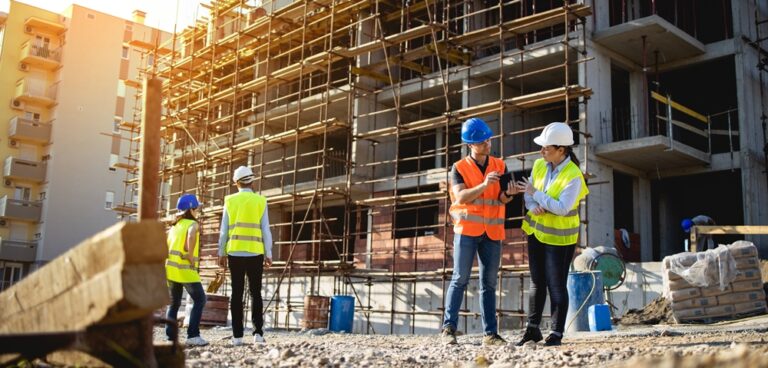By Mim Mogul, UK Managing Director, BauWatch
The government’s recent decision to reject blueprints to combat construction theft is deeply concerning. The proposed plans would have seen mandated forensic marking of power tools and compulsory fitting of immobilisers to machinery, but were rejected by the Home Office following a consultation on tool theft.
At a time when the construction industry is haemorrhaging around £800 million annually to criminals, and when industrial-scale theft has surged by 67% over the past year alone, according to our research, this inaction sends a troubling message that tackling construction crime isn’t a priority.
The Home Office’s response that it is exploring ‘alternative routes’ rings hollow when we have yet to see any meaningful action. Meanwhile, construction sites across the country remain vulnerable to increasingly sophisticated criminal enterprises, and one in three workers are forced to replace stolen tools at their own expense.
What makes the government’s position particularly frustrating is its stated concern about imposing ‘additional burdens’ on retailers, especially SMEs. This reasoning overlooks the 870,040 small and medium-sized businesses operating in UK construction, which account for nearly a sixth of all UK SMEs.
These businesses are already under immense pressure, especially given that construction businesses accounted for 17% of all UK insolvencies between April and July this year. By prioritising the administrative convenience of one sector over the economic survival of another, the government is overlooking the critical role construction plays in the wider UK economy.
The criminal arms race
The criminal threat facing construction has evolved dramatically. We’re no longer dealing with opportunistic thieves; we’re confronting organised criminal groups that deploy drones for surveillance, hack security systems, and even offer ‘protection’ against the very crimes they commit. This is industrial-scale criminality targeting an industrial-scale sector, and it deserves an industrial-scale response.
The consequences ripple far beyond construction sites. This crimewave delays projects, drives up costs across the supply chain, and ultimately hits taxpayers, renters, and homeowners in their pockets. When tools are stolen and projects stall, housing developments are delayed, infrastructure improvements are postponed, and the cost of building homes increases. In the midst of a housing crisis, we simply cannot afford this additional burden.
Protecting ourselves amid Government inaction
In lieu of support from the government, firms must be proactive about strengthening site security. This means, firstly, investing in comprehensive security systems that combine physical barriers with modern technology – CCTV with remote monitoring, GPS tracking for valuable equipment and tools, and robust perimeter security.
Second, collaboration is crucial. Construction firms should work closely with local authorities and police forces, sharing intelligence about criminal activity and suspicious behaviour. Many police forces have dedicated rural and business crime teams who can provide valuable advice on crime prevention. Industry bodies and trade associations can also facilitate information-sharing networks to identify patterns and hotspots.
Third, firms must implement rigorous asset management protocols. This might include maintaining detailed inventories of all tools and equipment – including serial numbers and photographs, marking equipment with forensic solutions that make stolen goods traceable and less attractive to thieves and, at the end of each working day, securing all valuable items in locked containers or removing them from site entirely.
Fourth, we need to invest in the workforce’s awareness. Firms should ensure that all site personnel understand security protocols and know how to report suspicious activity. Often, workers notice unusual behaviour but don’t know who to tell or don’t think it’s significant enough to report. Creating a culture of security awareness can be one of your most effective defences.
Finally, it is critical that firms review insurance coverage. Whilst prevention is always preferable to cure, ensuring you have adequate cover for theft can protect your business from catastrophic losses. Work with insurers who understand construction risks and can offer tailored policies.
The darker months are approaching, and historically, this is when thefts rise. Construction firms cannot afford to wait for government intervention that, at current, seems like a pipe dream. We must take responsibility for protecting our sites, our businesses and our teams.

